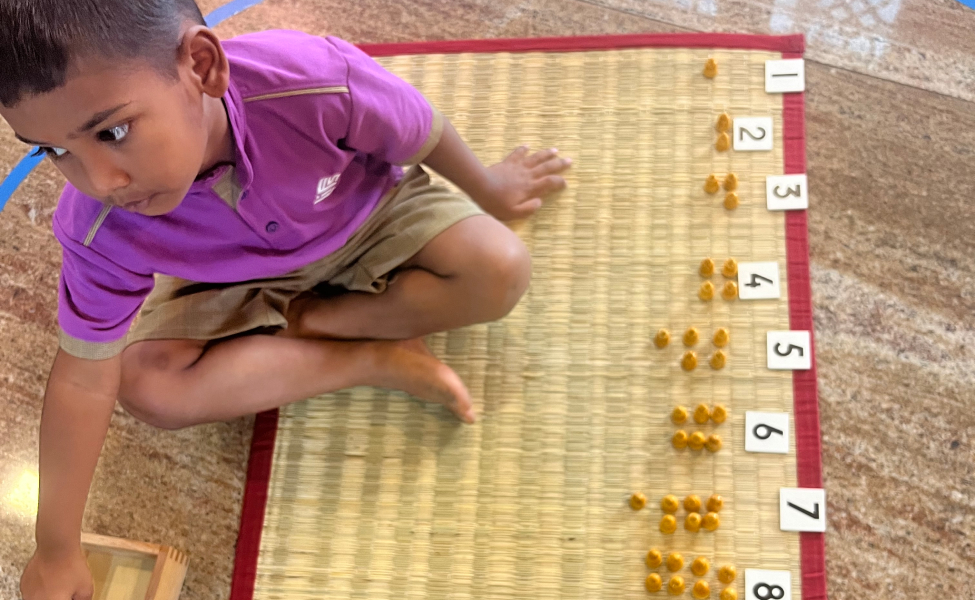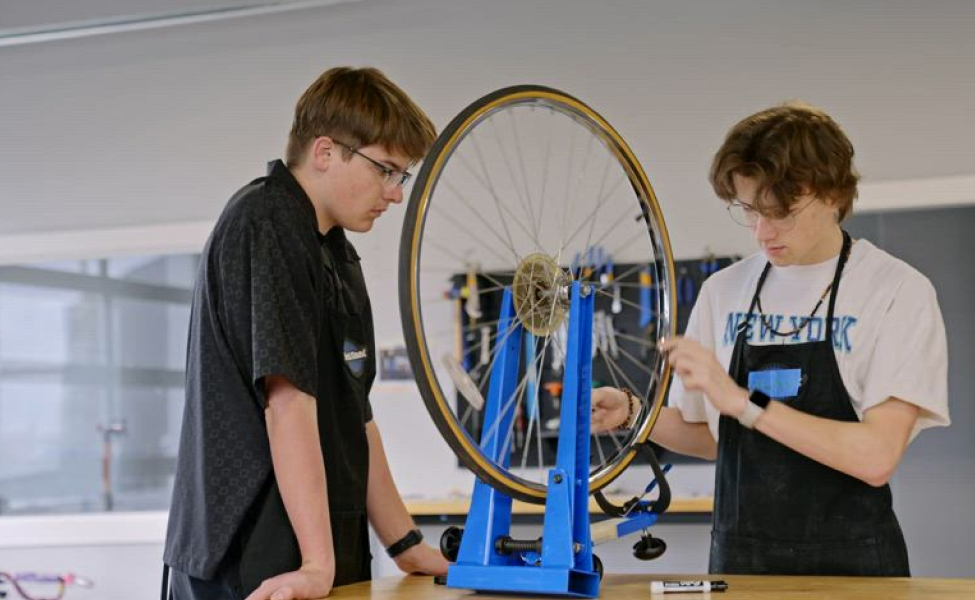In this blog, we’ll explore how Montessori high schools are uniquely positioned to foster independence and create an environment where students become passionate, lifelong learners.
1. Independence as a Core Principle
Independence is one of the core values of the Montessori philosophy. From the earliest stages of Montessori education, students are encouraged to take responsibility for their own learning. This principle continues in Montessori high schools, where teens are given the freedom to make choices about their education while being guided by experienced educators.
In a Montessori high school, students set their own goals, work at their own pace, and make decisions about how to approach learning tasks. This autonomy fosters a sense of ownership over their education, teaching students essential skills such as time management, self-discipline, and problem-solving. By giving teens this independence, Montessori high schools prepare them to become self-reliant, confident adults who are capable of navigating the complexities of life beyond school.
2. Student-Directed Learning
One of the defining features of Montessori education is the focus on student-directed learning. Unlike traditional schools that rely on teacher-led instruction and a standardized curriculum, Montessori high schools give students the opportunity to take charge of their own education. They are encouraged to follow their interests and passions, which leads to a deeper and more meaningful engagement with the subjects they study.
In this environment, students learn to think critically and take initiative. Instead of simply memorizing facts for exams, they are given the opportunity to explore subjects in depth, conduct independent research, and apply their knowledge to real-world scenarios. This hands-on, inquiry-based approach cultivates a love for learning that extends far beyond the classroom, setting students up to be curious, engaged learners throughout their lives.
3. Preparation for Real-World Challenges
Montessori high schools understand that learning goes beyond textbooks and tests. To prepare students for the challenges they will face in adulthood, these schools emphasize practical life skills alongside academic knowledge. Whether it’s through internships, community service, or project-based learning, Montessori students are given opportunities to apply what they’ve learned in real-world contexts.
This experiential learning helps teens develop a sense of responsibility and accountability. They learn how to collaborate with others, solve problems creatively, and adapt to new situations—skills that are essential in both higher education and the workforce. By bridging the gap between academic theory and practical application, Montessori high schools ensure that students leave with the tools they need to succeed in life beyond school.
4. Cultivating Lifelong Learners
At the heart of Montessori education is the belief that learning should be a lifelong endeavor. Montessori high schools are designed to nurture a natural curiosity in students, encouraging them to see learning as an exciting, ongoing process rather than something that ends after graduation. This approach contrasts sharply with traditional education systems, which often focus narrowly on passing exams and fulfilling curriculum requirements.
Montessori high schools instill in students a love of learning that endures throughout their lives. By allowing them to explore subjects they are passionate about, and encouraging them to ask questions and think critically, these schools help students develop the mindset of a lifelong learner—someone who is always open to new ideas, eager to explore, and willing to adapt in a constantly changing world.
5. Personalized Learning and Individual Growth
Montessori high schools recognize that every student is unique and that each learns at their own pace. Rather than adhering to a rigid, one-size-fits-all curriculum, Montessori schools provide a more flexible, personalized learning experience. Students are allowed to advance through subjects at their own speed, ensuring that they are neither held back nor overwhelmed by the pace of the class.
This personalized approach ensures that students are not just learning for the sake of passing exams but are genuinely mastering the material. When students are given the time and space to fully understand a subject, they are more likely to retain the information and apply it in meaningful ways. By focusing on individual growth, Montessori high schools create confident, competent learners who understand the value of deep learning and are motivated to continue growing throughout their lives.
6. Emotional and Social Development
The Montessori method places great emphasis on emotional and social development. Adolescence is a time of significant emotional growth, and Montessori high schools provide a supportive environment where students can develop important social skills such as empathy, communication, and conflict resolution.
Through collaborative projects, peer mentoring, and group discussions, students learn how to work together, respect others’ viewpoints, and develop healthy relationships. This social and emotional learning is crucial not only for academic success but also for personal well-being. As students mature into young adults, they leave with a well-rounded skill set that includes not only intellectual abilities but also emotional intelligence and social awareness.
7. Creating a Global Perspective
Montessori high schools encourage students to think beyond their immediate environment and develop a global perspective. In an increasingly interconnected world, it is essential for young people to understand global issues, appreciate cultural diversity, and develop a sense of social responsibility. Montessori schools nurture this global awareness through community engagement, discussions on world events, and projects that address global challenges.
By encouraging teens to look at the world from multiple perspectives, Montessori high schools prepare students to be active, engaged citizens who are capable of making positive contributions to society. This global mindset complements the independence and critical thinking skills that are central to Montessori education, ensuring that students are not only prepared for academic success but also for responsible citizenship.
8. Supportive Learning Environment
In Montessori high schools, educators serve as guides and mentors rather than authoritarian figures. This dynamic creates a respectful and collaborative relationship between students and teachers, fostering a supportive learning environment. Students are encouraged to ask questions, seek help when needed, and take risks in their learning, knowing that they have a supportive network of teachers and peers behind them.
This nurturing environment helps teens build self-confidence and a sense of purpose. They learn to trust their own abilities and judgment, leading to greater self-reliance as they move forward in life. The safe, respectful atmosphere of a Montessori high school empowers students to take on challenges and grow, both academically and personally.
Conclusion: Empowering Teens for Life
Montessori high schools provide a unique and empowering educational experience that equips teens with the skills and mindset needed for success in all areas of life. By fostering independence, encouraging lifelong learning, and emphasizing personal growth, Montessori schools help students become confident, curious, and compassionate individuals who are ready to face the challenges of the future.
Choosing a Montessori high school for your teen is more than an investment in their academic success—it’s a commitment to their overall well-being and personal development. With the tools and values instilled by a Montessori education, your teen will not only excel in school but will also develop the independence and passion for learning that will serve them for a lifetime.




